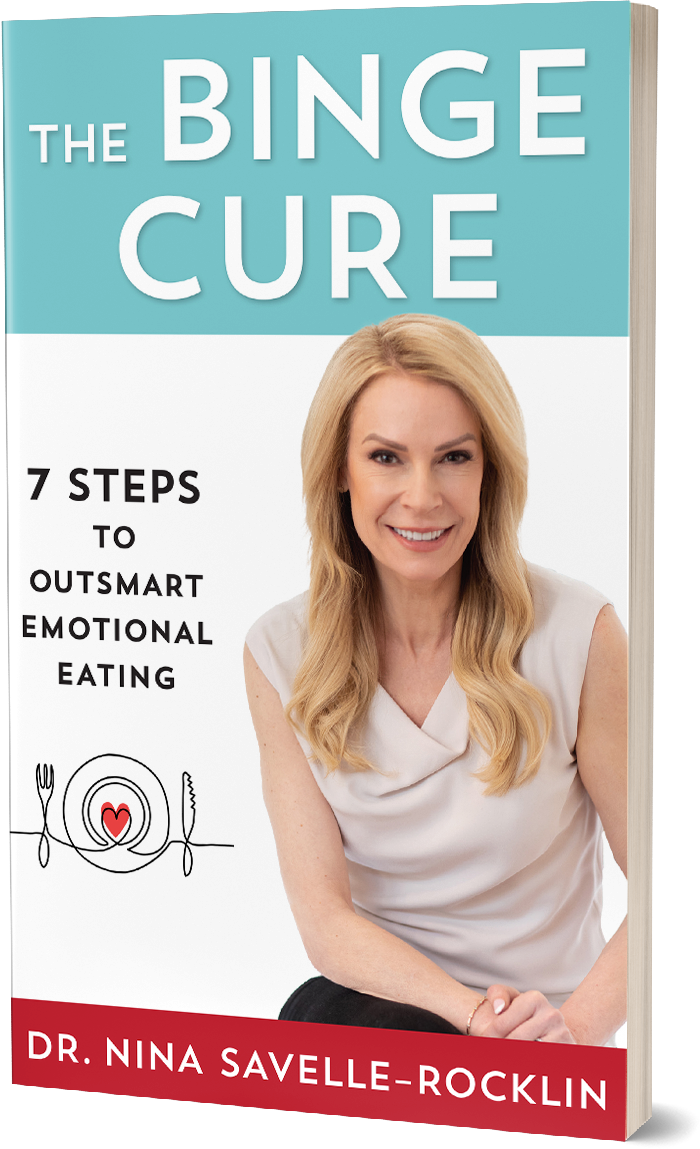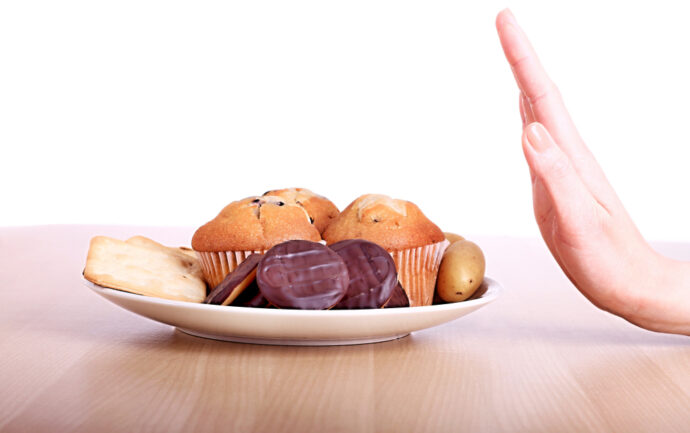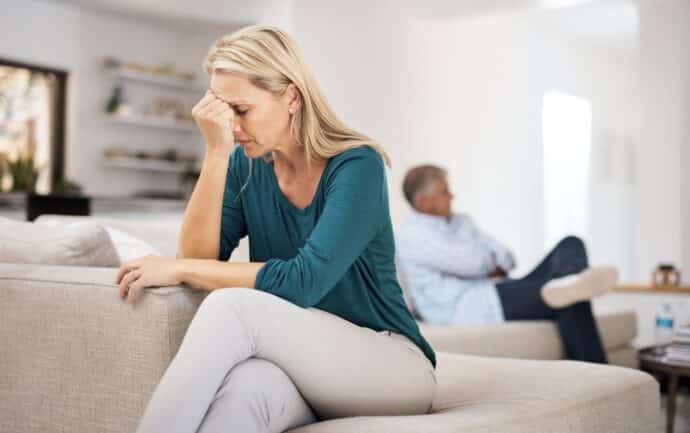Dr. Nina Savelle-Rocklin
How to tell if you need help with emotional eating
Table of Contents
- What is emotional eating?
- What are the signs of emotional eating?
- How to help yourself with emotional eating
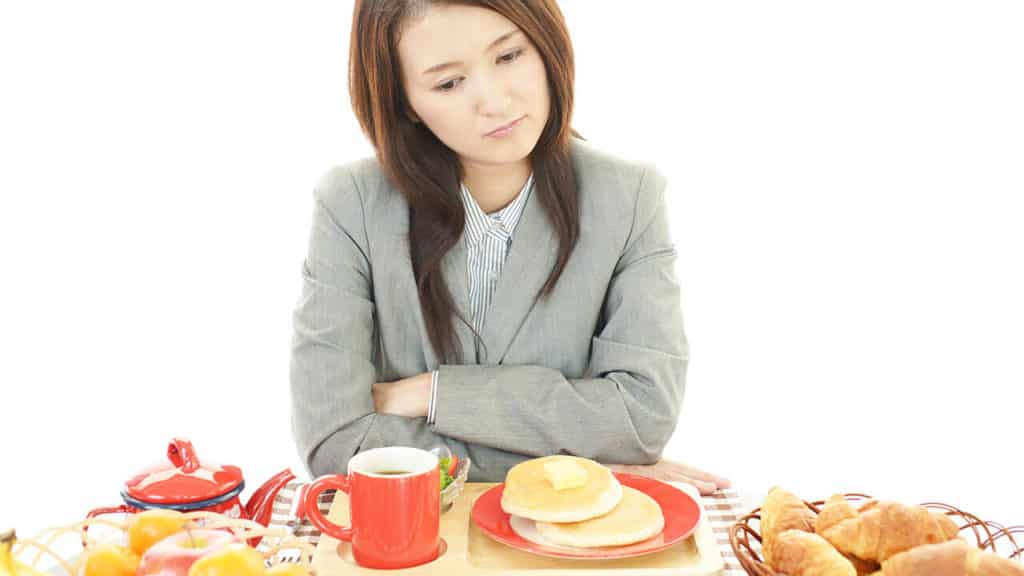
“Maybe your other patients are dealing with emotional issues. But I have no willpower. It’s about food, not feelings.”
Jenna* was certain that she was a food addict. I hear this a lot from people who struggle with food.
They can’t stop eating at night. They think they’re addicted to sugar. But when we dig deeper, we find that there’s a hidden trigger that’s leading to whatever is going on with food.
Skeptical? Jenna was, too. She insisted she was a food addict with no willpower and that her issues had nothing to do with emotions.
She was watching TV when suddenly she had to have ice cream. Immediately! Nothing was bothering her or upsetting her. Clearly, she thought, it’s about sugar.
Jenna said, “Face it, Dr. Nina, I’m addicted to Chunky Monkey.”
I asked her what was happening when ice cream started calling her name. She’d been watching a rerun of one of her favorite TV shows. She was Netflix & chilling and totally relaxed.
We dug deeper. In the episode, the sisters were fighting and things got very intense. Jenna didn’t consciously think about the strained relationship with her sister. But unconsciously, she was triggered. Before she realized that she was triggered by what she was watching, she immediately thought about ice cream.
She thought the trigger was ice cream. It wasn’t. The problem was her difficulty dealing with the painful feelings she had about her relationships with her sisters.
Once we identified her true trigger, her strained relationship with her sisters and her difficulty processing it, we worked through it. Jenna learned new strategies to deal with the situation and ice cream stopped calling her name.
What is emotional eating?
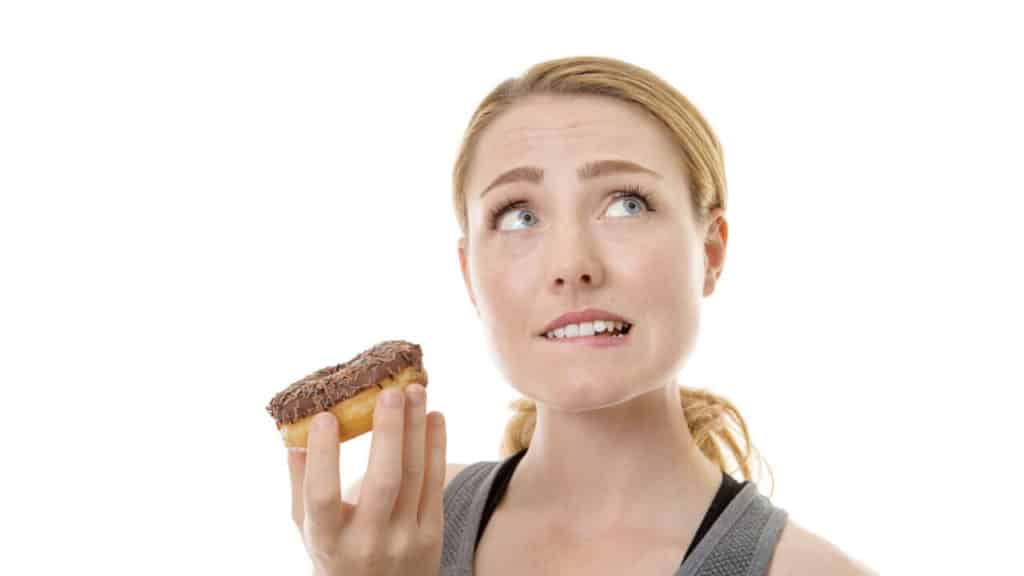
Emotional eating has nothing to do with physical hunger. It is when we turn to food to cope with difficult emotions or conflicts.
In the media, emotional eating is often depicted as someone diving into a gallon of ice cream after a breakup but that’s not the only way emotional eating is experienced.
Emotional eating can also mean turning emotional pain into physical pain by eating so much your stomach hurts. It can mean eating out of boredom or grazing mindlessly at night after dinner. It can mean turning to food to change the way you feel.
This can be in your awareness or it can be hidden, as it was in Jenna’s case.
What are the signs of emotional eating?
Sign #1 – Eating when you’re not hungry
When we’re physically hungry, our bodies give us signs, like a gurgling stomach or light-headedness, that we need to eat. Emotional eating is located more in our minds than in our bodies. If you have a specific craving, a particular food “looks good” or want to reward or comfort yourself, that’s a sign of emotional eating.
Jenna wasn’t hungry when she turned to ice cream. Instead, she was craving Ben and Jerry’s Chunky Monkey to comfort herself. It was driven by emotion, not a physical need.
Sign #2 – Eating at night after dinner
Carrie was great at eating healthily during the day. Sometimes she didn’t give food a single thought and was able to eat normally. But every night she’d end up going to the kitchen to scavenge in the fridge and the pantry.
She’d have a piece of toast, then another, and another. One night she cut a sliver of leftover birthday cake, then more, until the whole cake was gone.
What was going on? Carrie was a successful executive who’d just gotten a promotion and had no time for anything but work. During the day, she was busy, and her mind was occupied with managerial tasks. At night, she wasn’t distracted and she was alone with her thoughts.
Food distracted her from thinking about anything painful or upsetting. One thing Carrie didn’t want to think about was the fact that she had just turned 40 and she wasn’t married and it might be too late to have a family. As long as she was focused on food, she wasn’t sad about the life she didn’t have.
As Carrie processed the longing for a more satisfying life, one that involved more than work, she stopped eating at night.
Sign #3 Eating to change the way you feel
Sometimes life gets hard and every day feels like a challenge. Finding a way through isn’t always easy. That’s when food can become a coping mechanism. This was Annette’s experience.
As a single mother, she was looking after her kids while going through a difficult divorce. No wonder she was upset! She was distracting herself from these problems by eating sugary foods. It gave her the sweetness she was lacking and provided comfort when she needed it most.
Annette felt better by working through her feelings about the divorce, getting a new job, and finding new ways to respond to herself. She was able to be sweet to herself, instead of finding it in food.
Sign #4 Eating so much your stomach hurts
Physical pain can be used as a way of expressing emotional pain. When we feel so overwhelmed with emotion, sometimes we desperately need to focus on something else. That was what happened to Linda when she told me about the night she broke up with her long-term girlfriend.
“I ate so much it hurt,” she said. “I was in so much pain I literally couldn’t move. It was horrible.”
Devastated by the loss, she had ordered a large pizza which she ended up eating all herself. The overwhelming despair she was experiencing had been converted into physical pain. This gave Linda something to focus on besides the breakup. She also symbolically filled the void her girlfriend had left by eating until she was painfully full.
By working through the breakup and allowing her to grieve the relationship she had lost, Linda was able to heal her relationship with food.
How to help yourself with emotional eating
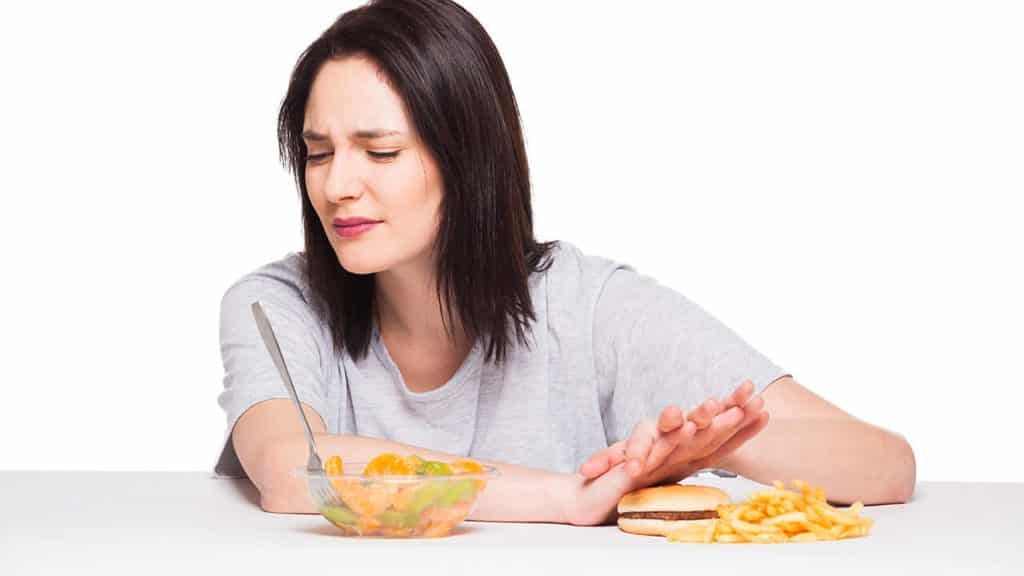
Those are just some of the signs of emotional eating. If you relate to anything I have described, I want you to know that there is hope. You can create a healthier, happier relationship with food.
The best place to start is to get comfortable with your emotions. That’s the core of our issues with food. It’s difficult for many of us to express feelings. We live in a society that tells us we’re strong if we keep our emotions to ourselves and weak if we express them.
We learn that feelings are too much for other people. It’s not ladylike to be angry. It’s not manly to cry.
But, we cannot get rid of feelings. Instead, cope in other ways, including turning to food. Next time you have a craving, ask yourself what’s eating at you. Once you identify what you are feeling, you can start learning to express those emotions.
Approach this with kindness and compassion. Respond to yourself as if you were talking with a friend or someone you care about or love.
Most of us wouldn’t say to a sad friend, “Here, eat this ice cream. You’ll feel better.”
We show our friends support, understanding and kindness. Practice doing that for yourself, as well, and you’ll be amazed at how much better you feel.
Another source of help is talking to a friend who you know will be supportive or joining a support group. You can also get professional help from clinicians who specialize in eating disorders.
You don’t have to go through this alone. There is hope!
You will feel better by changing the way you respond to yourself by offering comfort words (instead of comfort food). When you feel better, you don’t use food to cope.
*All names have been changed for confidentiality purposes
The Author

Dr. Nina Savelle-Rocklin is a renowned author and podcast host and one of the nation’s leading psychoanalysts known for the psychology of eating. Her signature message of, “It’s not what you’re eating, it’s what’s eating ‘at’ you” has resonated with hundreds of thousands of listeners from around the globe in 40 countries. As founder of The Binge Cure Method, she guides emotional eaters to create lasting food freedom so they can take back control of their lives and feel good in their bodies.
Related Blogs

